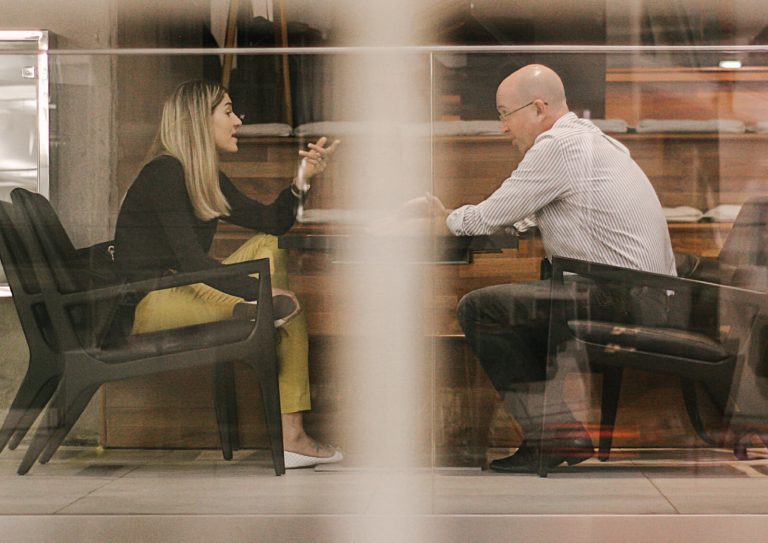Work used to be thought of as the place you’d earn money, while home was where you’d build your family life, rest and recover. But, with the lines between work and pleasure becoming increasingly blurry, separating one from the other is more challenging than ever.
In the age of work-from-home and ‘always-on’, how do you achieve that elusive work-life balance?
We explain how to assess if you’ve got the balance right and what to do if it’s off.
What does balance look like?
Balance sounds like it should be equal in each area, when – in reality – balance means different things to different people. It can change over time and can even be justified when things are out of balance.
For example, early in your career, long hours are important to you, to gain experience and confidence. If you’re striving for a promotion, you thrive on additional work and putting in more hours, especially with a high-performing team, can be exciting and fun. Crises at work or big projects can mean lack of balance for short periods, which can be managed.
With small children you might corral work hours very tightly to leave more emotional and physical space for the unpredictability of home duties. These are normal and often agreed ways in which balance varies.
Some people are lucky enough to love their job, pursuing it as a hobby and a passion. Or they own their own business, and any success is exhilarating and fuels even more investment. There are also times when burying ourselves in work is a solace and a comfort, when the home front is challenging or even unsafe.
Work-life balance and the working woman
Work-life balance often means something different to women, who generally can’t work with simplistic binaries of work and home, where the devil is absolutely in the detail.
Data shows us that even when in paid work for similar hours, women do more housework per week than men, undertake more of the caring for others (children, elderly parents) than men, take far more of the available parental leave, provide more voluntary labour, and yet earn less than their male counterparts.
Time can feel divided between multiple, nuanced and demanding spheres.
For many women in the workforce, attending to all areas of life can mean running faster and growing broader shoulders. Meeting the demands of bosses, partners, extended family, children, neighbourhood duties; they take on emotional barometer for loved ones, social hub leader, calendar organiser, extra pair of hands, taxi driver and spring cleaner.
Studies of role conflict and role stress indicate that duty to workplace and children tend to vie for equal first place in the list of priorities, with a partner coming third, and time for oneself a poor last.
While exercise may be maintained as it has become legitimate and necessary, this can be as good as it gets when it comes to “me time”.
The factors that shape our work-life balance
Decisions about our investment in work occur relationally. You need to manage your work expectations with your manager and colleagues. You need to negotiate with partners, friends and in relation to caring responsibilities.
Working hard might mean relationships suffer. Partners get lonely, children protest, and our resilience might suffer. Exhaustion can make us grumpy, and overwork can set a poor example for colleagues. Equally, a large work life could influence choosing a partner who is similar in work style and together you thrive.
Assessing your priorities when finding work-life balance
Ultimately, self-care has to be the ultimate determiner of your success. Are you physically and mentally healthy, and well connected to those who matter to you?
These are the things that will enable to you thrive at work, and to feel like life is worth living. Without them, work success can become one-dimensional and meaningless. The best workplaces will support you in this.
How to determine if you’ve got the work-life balance ‘right’
If you’re struggling to work out what balance means for you, or if you think you might have tipped over into prioritising work over other areas of your life, ask yourself these questions:
- Did I choose – actively or passively – the main investments of my time, or does it feel like they happened to me?
- If I recognise these investment are not ideal, am I tempted to bury those uncomfortable questions and justify doing more of the same? Can I tolerate digging a bit deeper into what motivates me?
- Are your long work hours helping you avoid areas where you are less successful or happy? For example, not having the intimacy or friends you’d like, not feeling close with your children or not having any other interests. Work can seem easier to navigate than interpersonal problems, but ultimately don’t reap the same rewards longer term.
- Are there factors in your workplace that make it difficult to question your work hours? Is this an assumption or the truth?
- Is fear of change, fear of conflict, or fear of disappointing others part of your hesitation about change? If so, this will hold you back.
- Are there hidden rewards in how you live your life? Such as being highly remunerated, being given accolades, awards, admiration, promotions, or status? What is at stake?
How to address an imbalance in your work and life
Self-awareness and accountability are key to self-understanding, good decision making and relationship success. We get caught up in the expectations of others, develop entrenched habits and routines, and can train others around us – partners, children, friends – to go along with it.
That can mean we don’t question the best way to live until challenged to do so. We don’t get the promotion or pay rise we expected, partners leave, health suffers. Then it can be too late.
Sometimes it can be helpful to seek the perspective of a third party, who can offer an objective opinion and help you to articulate what areas of your life you’d like to invest in and prioritise.
If you feel like you need extra support addressing your work-life balance, your workplace may offer an Employee Assistance Program. Relationships Australia NSW also offers a range of counselling services that can support you with workplace-related issues.
Related Services & Workshops

Accidental Counsellor
Accidental Counsellor is a workshop to assist people who aren’t trained counsellors, but often find themselves in a counselling role “by accident”. You’ll learn how to support clients, friends, family, colleagues, and strangers in distress or experiencing a crisis.

Counselling.Individuals.Older People.LGBTQIA+
Individual Counselling
Life can be full of ups and downs. While we may be able to overcome most challenges by ourselves, sometimes we need some extra support. Individual Counselling offers a supportive environment to identify and manage problems and concerns.






